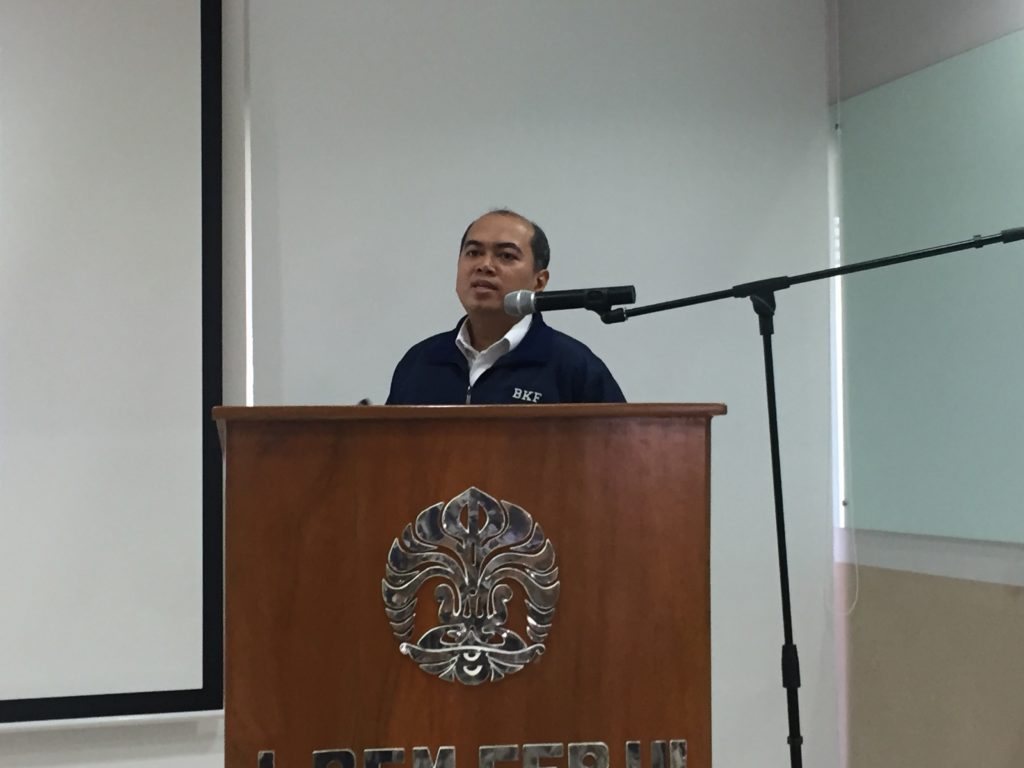The LPG subsidy program in Indonesia began in 2007 as an effort to phase out the use of kerosene as the main cooking fuel for poor households and micro businesses in Indonesia. The consumption of subsidized LPG continued to increase, reaching more than 6.5 billion kilograms in 2018, and making it the main cooking-fuel in most households in Indonesia. However, mistargeting of beneficiaries, limited domestic production, and the mismatch of retail prices, turned the subsidy into a financial burden for the government of Indonesia, thus indicating the need for an LPG subsidy transformation. As a response to this problem, PROSPERA and Fiscal Policy Agency of The Ministry of Finance have conducted a study to determine how the transformation should to be conducted. This study was presented in an FKP seminar on Monday, 16 September 2019 at LPEM FEB UI.
To gain a better understanding of the problem, the study breaks down various issued within each stage of policy making. At the policy design stage, the current subsidy scheme does not have there is no clear legal basis that limits to whom the subsidy is targeted. The lack of robust data also amplifies the difficulty in accurately mapping out the quota allocation for each beneficiary group. The government also did not plan an exit strategy, thus making it increasingly burdensome to the state budget. From a legal standpoint, overlapping laws and regulations make it difficult to resolve the issue of mistargeting from its legal basis. In the planning and budgeting stage, the government faces two main problems: price and quota mismatch. The retail price of subsidized LPG has been pegged at IDR 4,250 per kg for over a decade, making LPG prices in Indonesia among the lowest in the world, second only to Morocco. The discrepancy between the artificially low price and the increasing market price of LPG has made the retail price of 3 kg LPG in real terms continue to decline. In terms of implementation, the government often fails to put into account the distribution costs, causing the maximum retail price in each district much lower than its actual costs. Moreover, the lack of sanctions in purchasing subsidized LPG for higher-income citizens causes a persistent inclusion error, which can worsen the state of inequality. The domestic industry’s inability to respond to the increasing demand has also forced the government to rely on imports, thus contributing to the energy trade balance deficit.
To transform the current subsidy scheme, Prospera and BKF propose a direct transfer option, which replaces the current price subsidy with a direct transfer of cash assistance to the beneficiaries with a verification method. This scheme will allow beneficiaries to choose their energy product of choice or even other consumer goods. With the verification process, the government will also have a better oversight and a greater control on the budget. Inevitably, the elimination of price subsidy is estimated to have several consequences, such an increase in inflation, an increase in poverty and inequality, and a reduction of purchasing power. However, gains from the direct cash transfer are expected to offset the losses, and may reduce poverty and inequality due to improved targeting.
The slides of this presentation are not made available to the public by request of the speakers. For the complete presentation and Q&A session, please refer to the video and materials provided.





